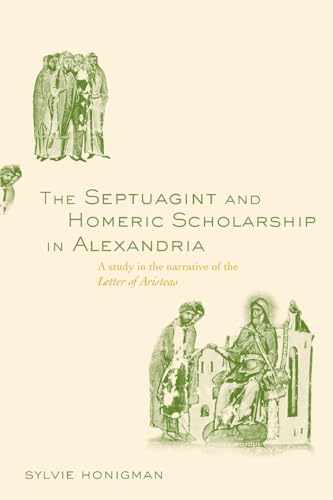The Septuagint and Homeric Scholarship in Alexandria: A Study in the Narrative of the Letter of Aristeas
The Septuagint and Homeric Scholarship in Alexandria: A Study in the Narrative of the Letter of Aristeas is backordered and will ship as soon as it is back in stock.
Couldn't load pickup availability
Genuine Products Guarantee
Genuine Products Guarantee
We guarantee 100% genuine products, and if proven otherwise, we will compensate you with 10 times the product's cost.
Delivery and Shipping
Delivery and Shipping
Products are generally ready for dispatch within 1 day and typically reach you in 3 to 5 days.
Book Details
-
Publisher: Routledge
-
Author: Sylvie Honigman
-
Language: English
-
ISBN: 9780415518543
-
Pages: 210
-
Cover: Paperback
-
Dimensions: 9.1 x 6.1 x 0.7 inches
About the Book
The Letter of Aristeas is a fascinating historical and literary work that recounts the commission by Ptolemy Philadelphus of Egypt to have seventy scholars translate the Hebrew Bible into Greek. Long regarded as a straightforward account of this cultural enterprise in Ptolemaic Alexandria, this letter has long puzzled historians and scholars due to its complex interpretative nature.
In this reprint edition, Sylvie Honigman argues that The Letter of Aristeas should not be viewed as a literal historical document but rather as a "charter myth" for diaspora Judaism. Honigman explores its generic connections with other works from Ptolemaic Alexandria and highlights the translation process as one that simultaneously served to establish an authoritative Jewish text—similar to the contemporary scholarly work being done on Homer’s text by Greek scholars.
This is the first comprehensive book-length study devoted to The Letter of Aristeas, offering a deep dive into one of the most intriguing literary works of the Ptolemaic era. Scholars of Jewish history, literature, and Ptolemaic Alexandria will find this analysis essential for understanding the cultural and intellectual context of the period.





